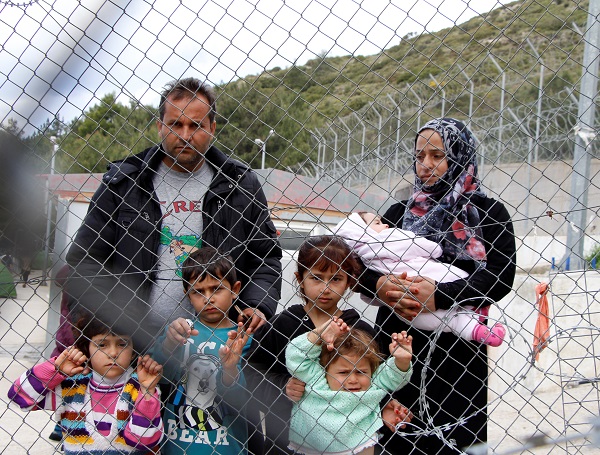
Monday 20 June 2016 marks World Refugee Day, which this year will see the United Nations Refugee Agency (UNHCR) launch the #WithRefugees petition to call for governments around the world to collaborate and do their fair share for refugees.
World Refugee Day has been commemorated annually since 2001, the 50th anniversary of the 28 July 1951 Convention Relating to the Status of Refugees. It recognises the fate of those forced by war, violence or persecution to flee their country in search of a better life elsewhere.
According to the UNHCR, this year a staggering 60 million people worldwide have found themselves the victims of forced displacement as a result of conflict or persecution. The number of people affected by humanitarian crisis has almost doubled over the last decade.
The turmoil in Syria has seen 6.5 million people displaced to date and 13.5 million people are currently in need of humanitarian assistance. This country is however not the sole target of crisis, with 130 million people affected throughout the world in places such as Burkina Faso and Mali, through to the Democratic Republic of Congo, Eritrea, South Sudan, Iraq, Afghanistan, Thailand and Colombia. The crisis is global and therefore requires a coordinated response from states.
In recognition of today, the Luxembourg Ministry of Foreing and European Affairs, as a longstanding humanitarian donor, called for an intensification of diplomatic efforts, including development cooperation.
In Kenya, the Ministry has supported the NGO CARE in its project at the Dadaab refugee camp, which aimed to provide protection to women and girls at risk of violence and suffering from post-traumatic stress disorder. In Niger, the Ministry contributed €127,000 to the Luxembourg Red Cross for the implementation of an emergency plan for about 44,130 Malian refugee camps and reception centres in Tillabery and Tahoua in western Niger.
In Myanmar, the Ministry supports the UNHCR programme for 412,000 people without citizenship, IDPs, refugees and host communities, whilst it also allocated contributions to humanitarian NGOs based in Luxembourg, including the Caritas Foundation, CARE in Luxembourg and the Luxembourg Red Cross which received more than €500,000 for various projects to help refugees in Greece and Serbia.
Europe experienced a massive influx of migrants via the Mediterranean in 2015 and also through the Balkan route since summer of last year. During its Presidency of the Council of the EU, Luxembourg committed to the implementation of the European agenda on migration proposed by the European Commission in May 2015 to deal with the tragedies experienced by thousands of migrants putting their lives at risk to cross the Mediterranean.
The influx in Europe has resulted in a significant increase in the number of applications for international protection. According to the European Asylum Support Office (EASO), more than 1.3 million people submitted an application for asylum in 2015 across the 28 Member States of the European Union, Switzerland and Norway. This is double those recorded in 2014, whilst from January to April 2016, the number of claims was 412,000.
In Luxembourg, the number of asylum applications stood at 2,447 in 2015, the majority of which were from Syria, followed by Iraq. Between January and the end of May 2016, 734 people applied for international protection, with Iraq and Syria again the primary countries of origin. Faced with this influx, the Luxembourg government decided in July 2015 to set up an emergency reception plan for asylum seekers.
In accordance with the decisions of the Justice and Home Affairs (JHA) Council of September 2015, Luxembourg will receive, from now until September 2017, 557 asylum seekers from Greece and Italy. To this end, 71 people of Syrian and Iraqi origin have so far arrived in the Grand Duchy.
Luxembourg also pledged to resettle 50 Syrians from Turkey as part of the implementation of the Joint Declaration between the EU and Turkey on 18 March 2016. Luxembourg has since hosted a first group of 27 people of Syrian origin from Turkey.
Medical humanitarian organisation Médecins sans Frontières (MSF) has however strongly criticised the EU-Turkey agreement, claiming that it has left more than 8,000 people stranded on the Greek islands and consequently taking the bold decision to announce its complete rejection of EU funding.
Photo by MSF








